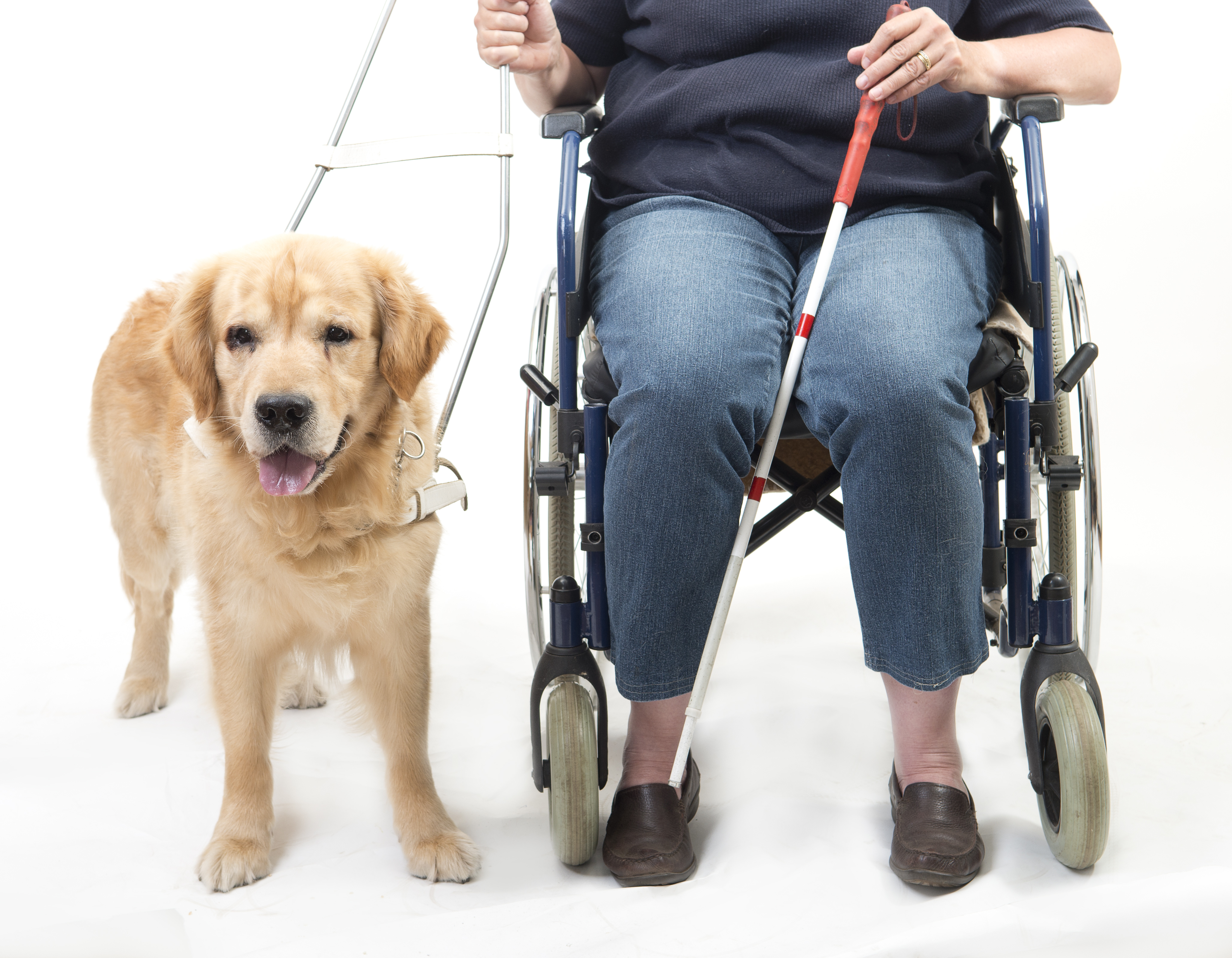By Garret DeReus, December 19, 2024
Healthcare facilities must allow service animals to accompany individuals with disabilities, even in areas where pets are typically prohibited. This requirement stems from Title II and Title III of the Americans with Disabilities Act (ADA), which mandate reasonable modifications to policies and practices to accommodate individuals with disabilities.

Basic Requirements for Healthcare Facilities
Medical facilities must modify their standard “no pets” policies to allow service animals to accompany their handlers throughout the facility. This includes waiting rooms, examination rooms, hospital rooms, clinics, and other areas where the public and patients are permitted. The law recognizes that service animals are not pets but rather highly trained animals that perform specific tasks for individuals with disabilities.
Permissible Inquiries
According to federal regulations, healthcare staff may only ask two specific questions to verify a service animal:
- Is the animal required because of a disability?
- What work or task has the animal been trained to perform?
Staff cannot request documentation of training, certification, or licensing. When the animal’s service role is obvious (such as guiding a visually impaired person or pulling a wheelchair), staff should not make these inquiries at all.
Limitations and Exceptions
While the general right of access is broad, certain limitations exist to maintain health and safety standards. Healthcare facilities may restrict service animals from entering:
- Operating rooms and surgical suites
- Areas requiring a sterile environment
- Similar areas
Additionally, a facility may ask for a service animal to be removed if:
- The animal is out of control and the handler does not take effective action to control it
- The animal is not housebroken
- The animal’s presence would fundamentally alter the nature of the services provided
Importance of Service Animal Access in Healthcare
Access to service animals in healthcare settings is crucial for individuals with disabilities. Service animals provide essential support for various needs, including mobility assistance, seizure detection, diabetes alert, and psychiatric support. Separating individuals from their service animals can cause significant distress and may even deter them from seeking necessary medical care.
Many individuals with disabilities rely on their service animals for physical assistance during medical appointments or hospital stays. The presence of a service animal may be able to help ensure better medical outcomes by allowing the individual to function more effectively in the healthcare environment.
Handler Responsibilities
Service animal handlers must maintain control of their animals at all times using a harness, leash, or other tether. Exceptions exist when the handler’s disability prevents using these tools or when they would interfere with the animal’s work. In such cases, the handler must maintain control through voice commands or other effective means.
The handler is responsible for the animal’s care, feeding, and supervision. Healthcare facilities are not required to provide care or food for service animals.
Legal Remedies
Violations of service animal access rights can result in significant legal consequences. Some of remedies include:
- Pursuing private lawsuits under the ADA
- Seeking injunctive relief to force policy changes
- Obtaining compensatory damages under state laws
- Recovering attorney’s fees and costs
Louisiana laws may provide protections and remedies beyond federal requirements. Individual with disabilities who believe that their rights under federal or state have been violated should contact an attorney to discuss their rights.
***
Bizer & DeReus will soon publish an article on service animal cases in the healthcare context. This forthcoming article will examine how courts have interpreted service animal regulations and what remedies have been pursued against said facilities for failure to comply with their legal obligations.